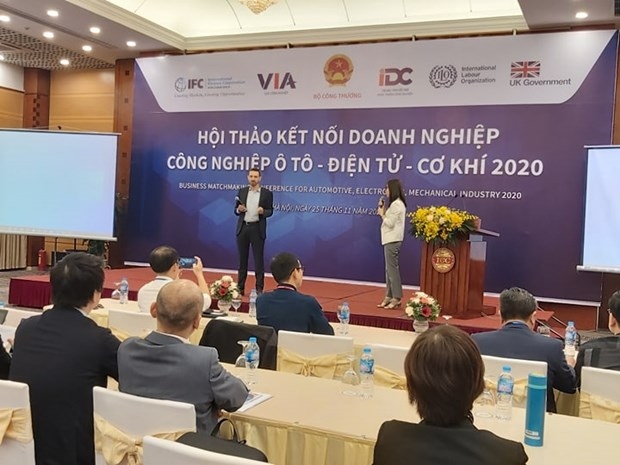COVID-19 pandemic improves Vietnam’s chance to enter global supply chain: ILO expert
The effective handling by the Vietnamese Government of the COVID-19 crisis has created a very big opportunity for local suppliers to attract more businesses and investment from other countries, thus entering the global supply chain, according to an ILO expert.

The Vietnamese industry could operate quite normally for many months in comparison with other countries where they apply longer lockdown amid the COVID-19 pandemic, and this makes Vietnam become quite famous for good handling of the sitation.
It also helps the domestic companies keep producing, said Stephan Ulrich, Regional Programme Manager of the Sustaining Competitive and Responsible Enterprises (SCORE) Programme of the International Labour Organisation (ILO).
“I think that Vietnam’s successful handling of the COVID-19 crisis has shown to many international buyers looking for places to produce or suppliers that Vietnam is really a place to do business,” he said in an interview with the Vietnam News Agency on the sidelines of the Business Matchmaking Conference for Automotive, Electronics, Mechanical Industry 2020 in Hanoi on November 25.
The expert spoke highly of Vietnam’s investment climate and workforce, which are important factors for attracting international manufacturers and for export.
“In the eyes of ILO, I believe good work conditions are more important for entering key markets."
He also suggests Vietnamese enterprises update modern technology and improve production quality and speed of delivery, while investing in quality staff, implementing and producing consistent quality products to take full advantages of the opportunity to enter the global supply chain.
The conference was jointly held by the Industrial Development Centre under the Vietnam Industry Agency of the Ministry of Industry and Trade, the ILO and the World Bank, with the participation of over 100 Vietnamese suppliers in the automotive, electronic and mechanical industry.
The event aims to connect domestic small- and medium-sized manufacturers with multinational groups, thus enhancing opportunities for them to become the groups’ suppliers.
Representatives from the automotive groups Honda Vietnam and Toyota, and the electronic manufacturer Samsung shared the groups' localisation strategies and training programmes targeted capable Vietnamese suppliers, faciliting their approach to the groups’ supply chain.
They also put forth recommendations for the Government in terms of policy-making and offering incentives to encourage and increase the localisation rate among international groups in Vietnam.
